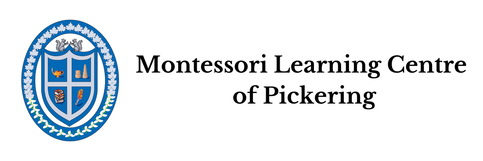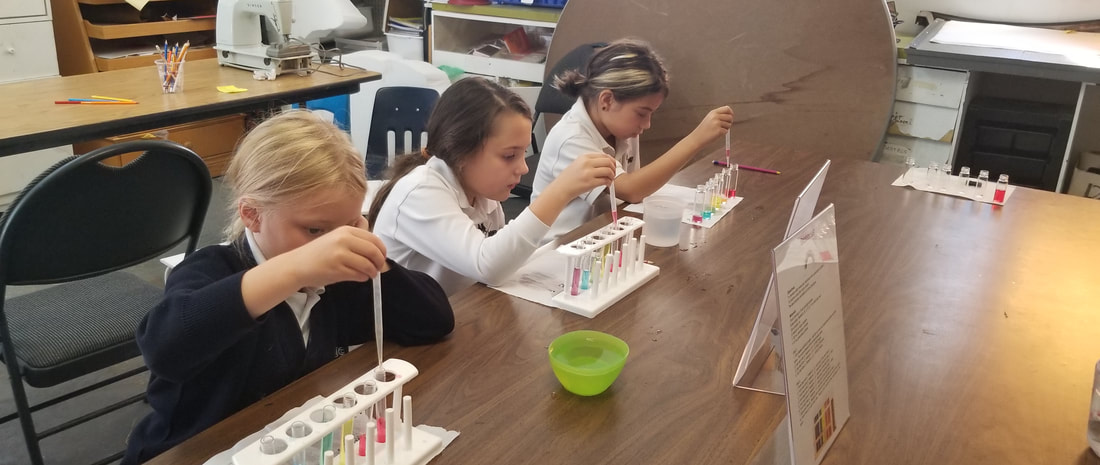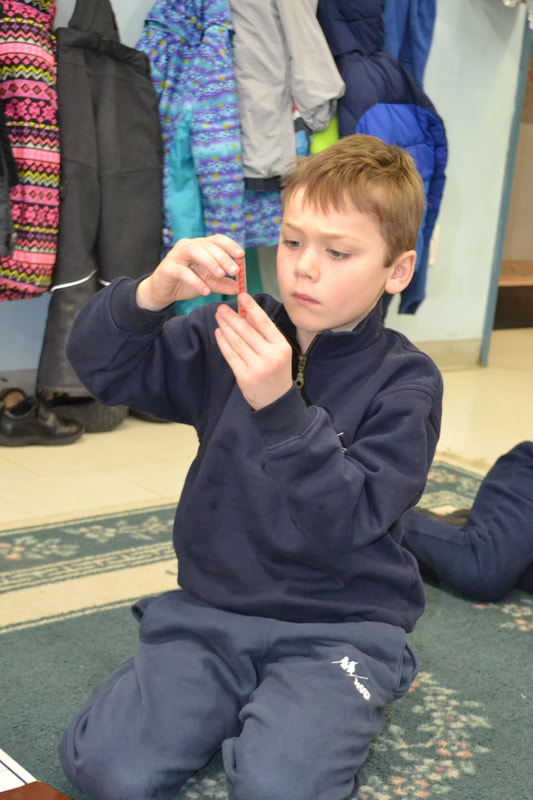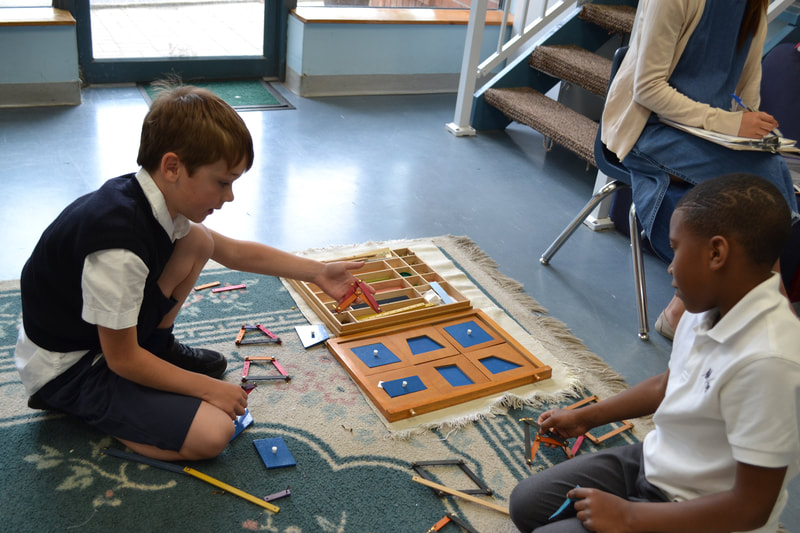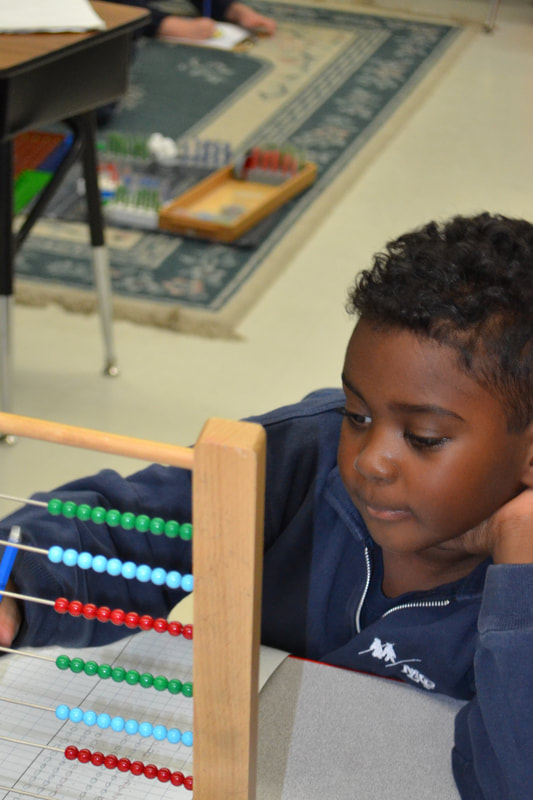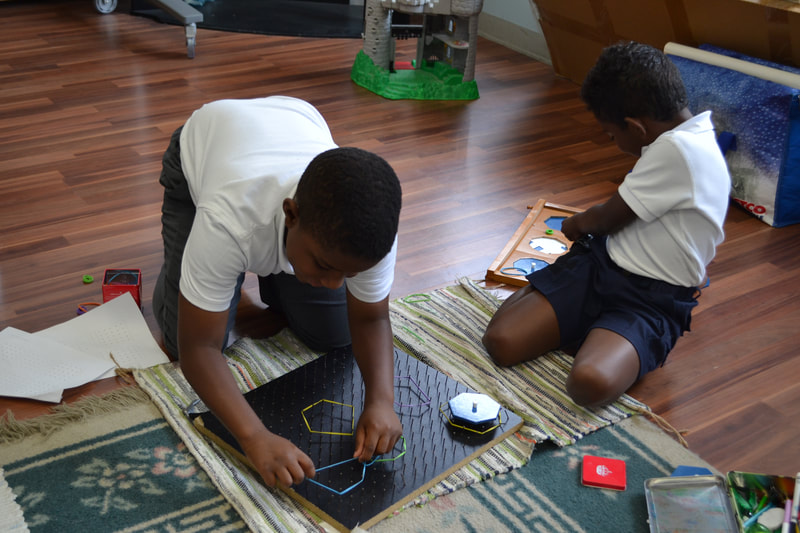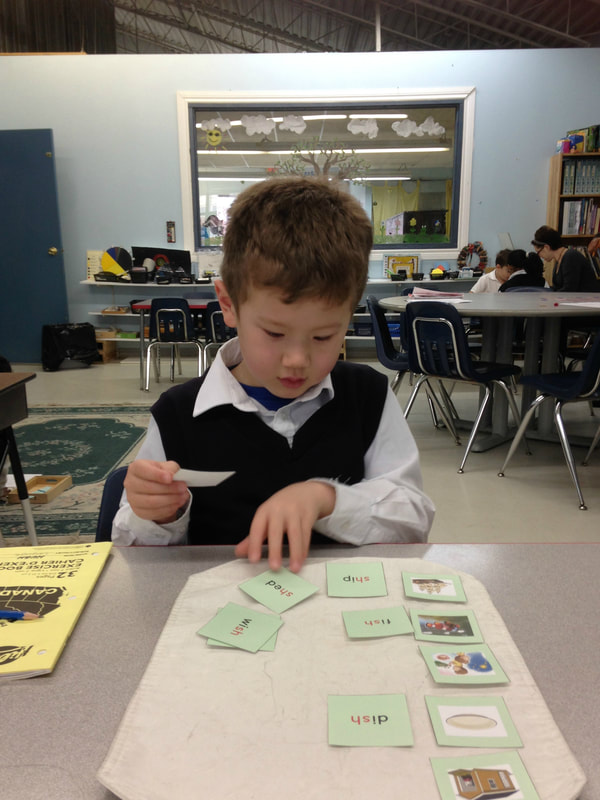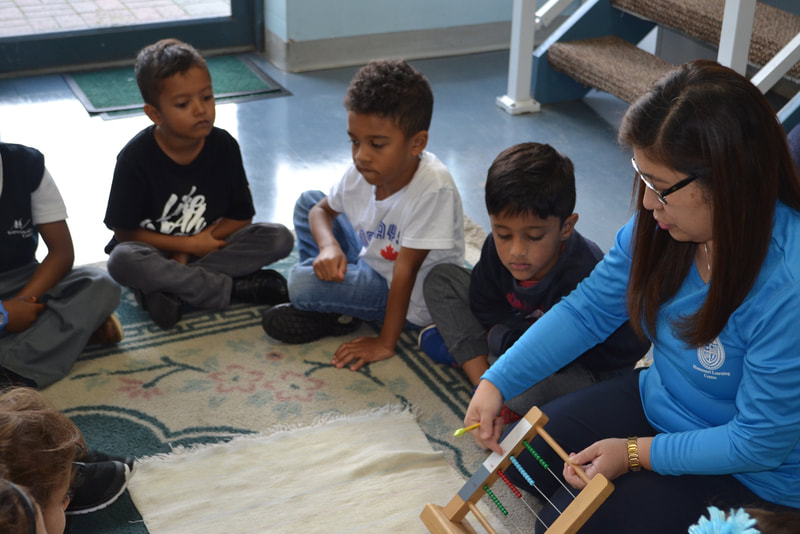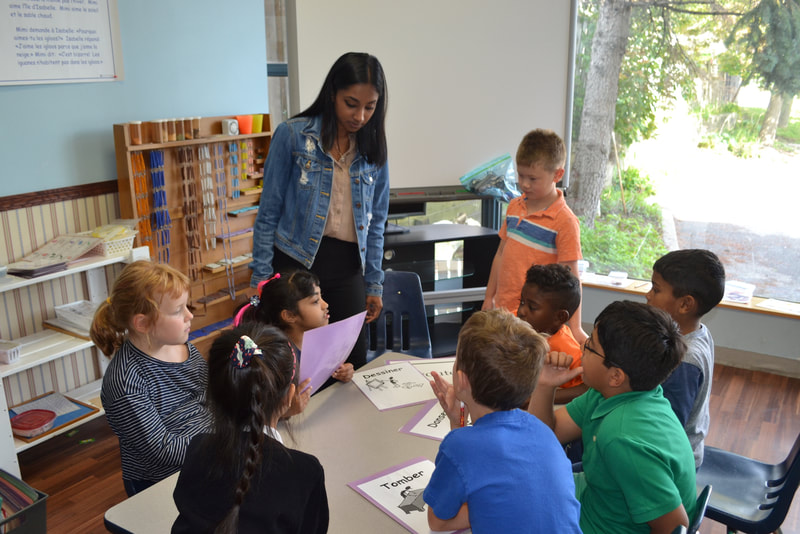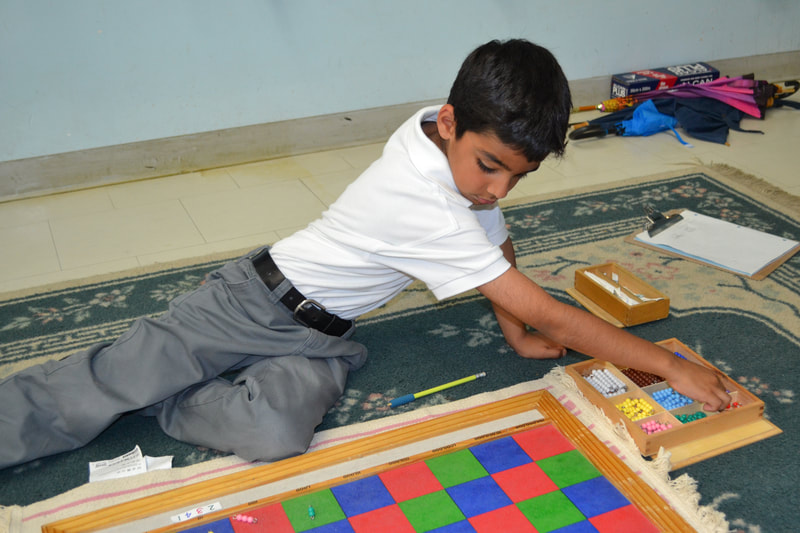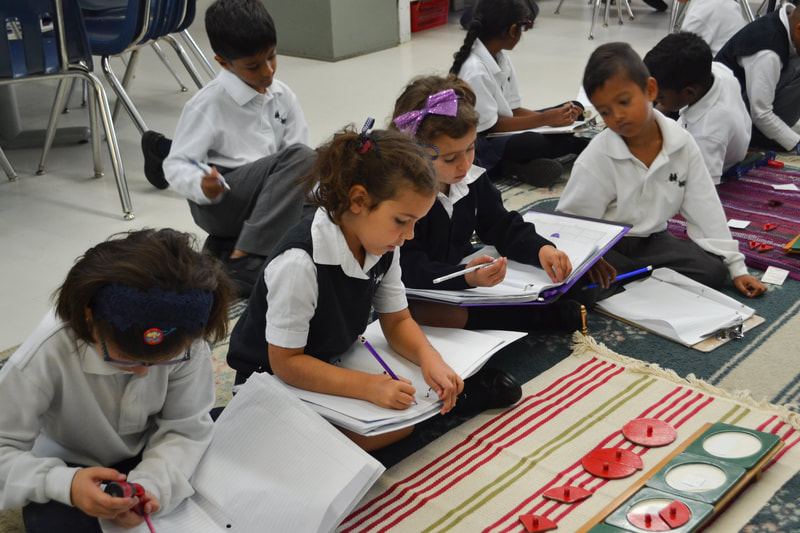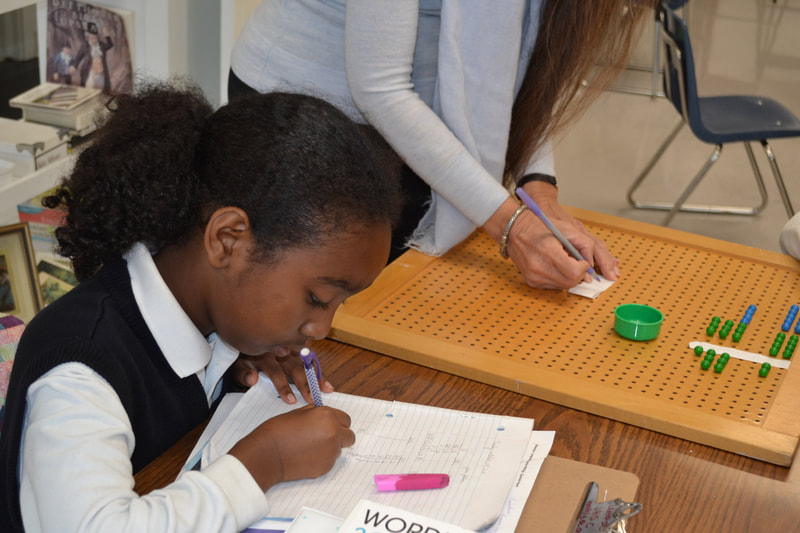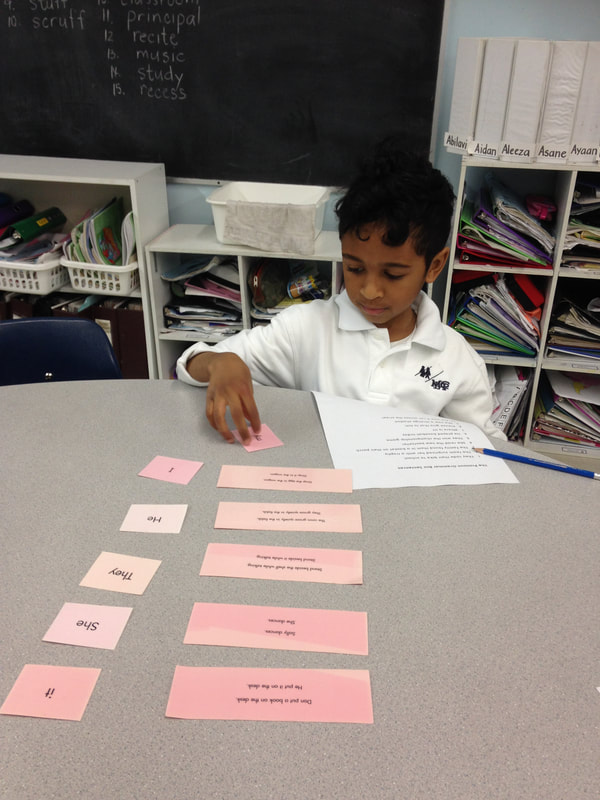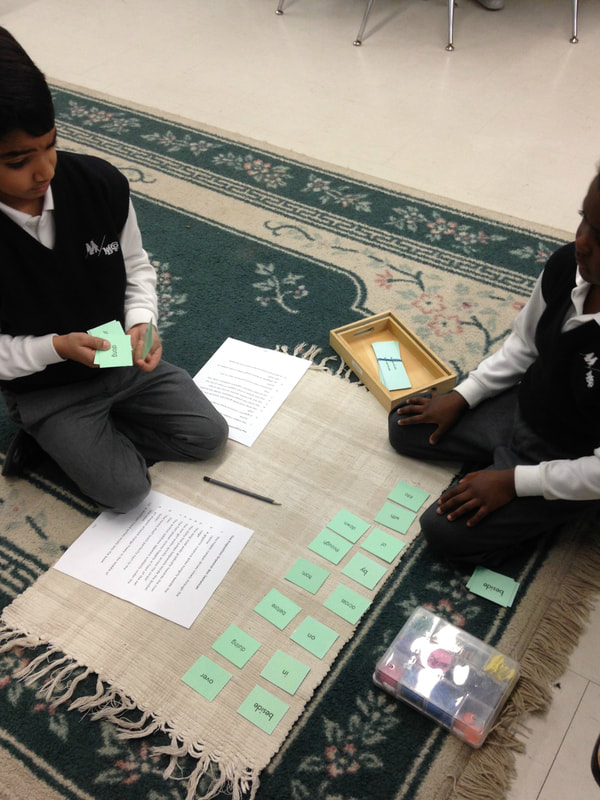Junior Program
Choosing a private school for your child’s Elementary education is a big decision. There are so many factors to consider: financial requirements, academic quality, social integration, extra-curricular programs and specialty class opportunities. The teachers and administration of MLCP work with parents to ensure children are flourishing in the program. We take the education of your child very seriously and endeavor to create well-rounded, responsible and self-reliant individuals.
The Junior and Intermediate Elementary classrooms cater to students between the ages of six and fourteen. A Montessori approach is applied to the content of the Ministry of Education's curricula. It has been found that, with the individual attention each student receives, marked progress is generally noted. As time progresses, the work becomes more abstract in nature.
Continuing study of the four functions (addition, subtraction, multiplication and division), both simple and complex, memorization of facts, measurement, time, fractions and algebra make up the core of the math program. Parts of speech, basic punctuation, spelling rules, homonyms, antonyms, synonyms and reading skills comprise the basis for the Language area. Culturally, the Elementary students explore many new exciting areas in - Geography, Science, Botany, Zoology, History and the Pre-Historic Eras, again reinforced with specially created materials and assignments.
The Junior & Intermediate Elementary Programmes offer a continuum built on the Casa experience. The environment reflects a new stage of development and offers the following:
As in Casa, the Montessori materials are a means to an end. They are intended to evoke the imagination, to aid abstraction and to generate a world view about the human task and purpose. The child works within a philosophical system asking questions about the origins of the universe, the nature of life and people and their differences. On a factual basis, interdisciplinary studies combine geological, biological, and anthropological science in the study of natural history and world ecology.
The programme is made up of connective narratives that provide an inspiring overview as the organizing, integrating "Great Lessons." Great Lessons span the history of the universe from the big bang theory of the origin of the universe, earth and life forms to the emergence of human cultures and the rise of civilization. Aided by impressionistic charts and timelines, the child's study of detail, in reference to the Great Lessons, leads to awe and respect for the totality of knowledge of the human race and all life forms.
Studies are integrated not only in terms of subject matter but in terms of moral learning as well, resulting in appreciation and respect for life, moral empathy, and a fundamental belief in progress, the contribution of the individual, the universality of the human condition and the meaning of true justice.
The Junior and Intermediate Elementary classrooms cater to students between the ages of six and fourteen. A Montessori approach is applied to the content of the Ministry of Education's curricula. It has been found that, with the individual attention each student receives, marked progress is generally noted. As time progresses, the work becomes more abstract in nature.
Continuing study of the four functions (addition, subtraction, multiplication and division), both simple and complex, memorization of facts, measurement, time, fractions and algebra make up the core of the math program. Parts of speech, basic punctuation, spelling rules, homonyms, antonyms, synonyms and reading skills comprise the basis for the Language area. Culturally, the Elementary students explore many new exciting areas in - Geography, Science, Botany, Zoology, History and the Pre-Historic Eras, again reinforced with specially created materials and assignments.
The Junior & Intermediate Elementary Programmes offer a continuum built on the Casa experience. The environment reflects a new stage of development and offers the following:
- Integration of the arts, sciences, geography, history, and language that evokes the imagination and abstraction of the elementary child
- Presentation of knowledge as part of a large-scale narrative that unfolds the scientific origins of the earth, life, human communities, and modern history, always in the context of the wholeness of life
- Presentation of the formal scientific language of zoology, botany, anthropology, geography, geology, etc., exposing the child to accurate, organized information and respecting the child's intelligence and interests
- The use of timelines, pictures, charts, and other visual aids to provide a linguistic and visual overview of the first principles of each discipline
- A mathematics curriculum presented with concrete materials that simultaneously reveal arithmetic, geometric, and algebraic correlations
- Montessori-trained adults who are "enlightened generalists" (teachers who are able to integrate the teaching of all subjects, not as isolated disciplines, but as part of a whole intellectual tradition)
- Emphasis on open-ended research and in-depth study using primary and secondary sources as well as other materials
- "Going out" to make use of community resources beyond the four walls of the classroom
- Interschool athletic opportunities
- Ongoing grace and courtesy obligations
- Involvement at all levels of classroom management
As in Casa, the Montessori materials are a means to an end. They are intended to evoke the imagination, to aid abstraction and to generate a world view about the human task and purpose. The child works within a philosophical system asking questions about the origins of the universe, the nature of life and people and their differences. On a factual basis, interdisciplinary studies combine geological, biological, and anthropological science in the study of natural history and world ecology.
The programme is made up of connective narratives that provide an inspiring overview as the organizing, integrating "Great Lessons." Great Lessons span the history of the universe from the big bang theory of the origin of the universe, earth and life forms to the emergence of human cultures and the rise of civilization. Aided by impressionistic charts and timelines, the child's study of detail, in reference to the Great Lessons, leads to awe and respect for the totality of knowledge of the human race and all life forms.
Studies are integrated not only in terms of subject matter but in terms of moral learning as well, resulting in appreciation and respect for life, moral empathy, and a fundamental belief in progress, the contribution of the individual, the universality of the human condition and the meaning of true justice.
Testimonials
"We chose MLCP as an alternative daycare when we enrolled years ago. I simply assumed that in Grade 1, we would transfer our children to the public school system. However I don't believe the ongoing love and attention that they receive at MLCP could ever be found anywhere else, private or public, and the decision to keep them here was made without hesitation." ~ Melonie
"Any reservations we had about enrolling our son in the Montessori Learning Centre of Pickering were quickly dismissed as we noticed his eagerness and happiness in attending. The teacher's patience, energy and enthusiasm are exemplary!" ~ Butler family
"I wish this school to continue to operate so that other children will have the opportunity to excel early in life and build a strong academic foundation for years to come." ~ Dr George Tong
"Any reservations we had about enrolling our son in the Montessori Learning Centre of Pickering were quickly dismissed as we noticed his eagerness and happiness in attending. The teacher's patience, energy and enthusiasm are exemplary!" ~ Butler family
"I wish this school to continue to operate so that other children will have the opportunity to excel early in life and build a strong academic foundation for years to come." ~ Dr George Tong
